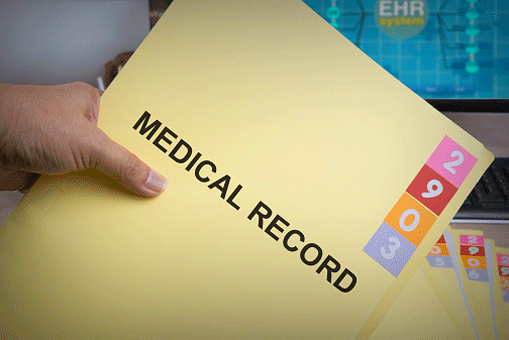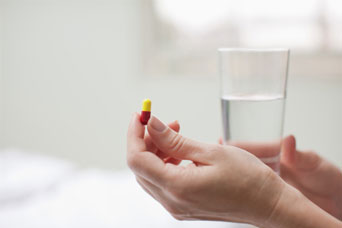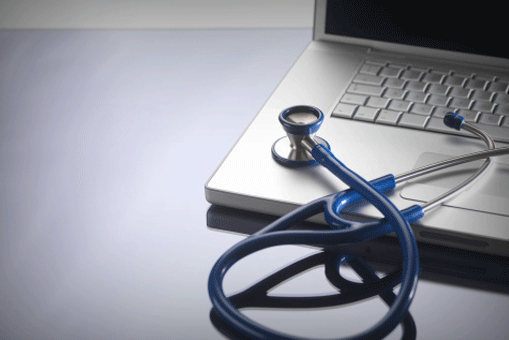Medication Safety Tips at the Clinic
Your medical history
No one knows you better than yourself! At your doctor's visit, be sure to discuss your medical history:
- Any symptoms you may be experiencing -such as headaches or nausea
- Any medical conditions you've been diagnosed with—such as heart disease or arthritis
- Any surgical operations you have had—such as a having your tonsils removed or a caesarean section (or “c-section”)1


Medicines you take
Tell your doctor about all the medicines you take. You need to mention:
- Medicines you take every day or just once in a while
- Nonprescription (or over-the-counter [OTC]) medicines—such as pain relief products
- Prescription medicines, including samples of any prescription medicines you may have received from your doctor
- Vitamins, supplements, and herbal or natural remedies2
Other important information
You are your best advocate! Be sure to share with your doctor if you:
- Use alcohol, cigarettes, other tobacco products, or substances such as marijuana
- Have allergies
- Are pregnant, breastfeeding, or are trying to have a baby
- Have memory problems
- Have trouble swallowing, seeing clearly, walking, or using your hands3

Some Questions to Ask Your Doctor (or other healthcare provider):
- Do I have a particular health problem? And if yes, what is it?
- What do I need to do about it and why is it important for me to do this?
- Does this new medicine replace another medicine I am already taking, or will it interfere or change how I take any of my other medicines?4
- What is the name of my medicines?
- What symptoms/conditions does this medicines treat?
- How do I take the medicine?
- How long will I be on the medicine?
- What are the possible and most likely side effects of the medicine?
- How do I manage possible side effects, and when would I contact you?
- What happens if I don’t take my medicine at the right time or dosage they were prescribed? What happens if I do not take my medicine at all?2
Print these questions so you have a copy the next time you go to the doctor.
What happens if I ever have to go to the hospital?
If you are hospitalized, bring your medicines and a written list of them to the hospital. This way the health care team will know what you are taking and ensure it is safe to take with existing medications.5
Ask the name of each medicine you are given in the hospital and why you are getting it. Asking the staff questions can help prevent errors. Make sure the staff checks your patient identification bracelet before giving you medicines. This can help prevent mix-ups.6
When you are discharged from the hospital, have a member of the healthcare team explain each medicine you have been prescribed to take at home. Then update your medication list and be sure to share any changes with all members of your healthcare team. It is often helpful to have someone with you to also take notes.5
Help make your treatment and medication plan work as intended by getting advice from your doctor, asking questions, and reporting any side effects that you may be experiencing.1
1 Preparing for a Docors Appointment. Department of Health and Human Services. https://www.dhhs.nh.gov/dcbcs/bds/nurses/documents/drapptprep.pdf.
2 Questions To Ask Your Doctor. AHRQ--Agency for Healthcare Research and Quality: Advancing Excellence in Health Care. https://www.ahrq.gov/patients-consumers/patient-involvement/ask-your-doctor/index.html. Published September 26, 2012
3 Your Medicine: Play It Safe (with pill card). Archive: Agency for Healthcare Research Quality. https://archive.ahrq.gov/consumer/safemeds/safemeds.htm#1Way.
4 Gold J. The risk of continuing medicines that are no longer prescribed - Consumer Med Safety. ConsumerMedSafety.org - Prevent Medication Errors - Consumer Med Safety. http://www.consumermedsafety.org/medication-safety-articles/item/816-the-risk-of-continuing-medicines-that-are-no-longer-prescribed.
5 Gold J. Top 10 things you can do to stay safe with your medicines when you are in the hospital - Consumer Med Safety. ConsumerMedSafety.org - Prevent Medication Errors - Consumer Med Safety. http://www.consumermedsafety.org/tools-and-resources/medication-safety-tools-and-resources/consumer-medsafety-lists/item/597-top-ten-things-you-can-do-to-stay-safe-with-your-medicines-when-you-are-in-the-hospital.
6 Perry DC, Scott SJ. Advances in pediatrics. https://www.ncbi.nlm.nih.gov/pmc/articles/PMC2653157/. Published April 2007.
When Anna visits her new doctor, Dr. Chan, she brings a list of the medicines she takes and questions to ask her doctor. At the visit, Anna and her doctor share information. They build the best possible treatment plan for her. Anna leaves her doctor’s office with a prescription and information on her new medicine’s benefits and risks.
